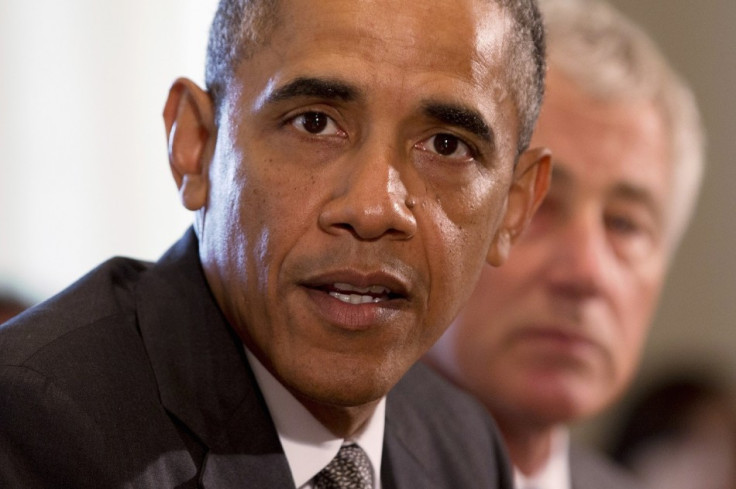Syria: Obama Warns of 'Consequences' Over Failure to Comply with Chemical Weapons Plan

President Barack Obama has welcomed a deal brokered between the US and Russia for Syria to destroy its chemical weapons stockpile, but warned that he still retains the option to use force if Bashar al-Assad's regime fails to meet all of the conditions agreed.
After three days of intensive negotiations in Geneva, US Secretary of State John Kerry and Russian foreign minister Sergei Lavrov yesterday announced that Syria would have to provide a comprehensive list of its chemical weapons by the end of the week, and allow UN weapons inspectors access to destroy them all by the middle of 2014.
"This framework provides the opportunity for the elimination of Syrian chemical weapons in a transparent, expeditious, and verifiable manner, which could end the threat these weapons pose not only to the Syrian people but to the region and the world," the US president said. "The international community expects the Assad regime to live up to its public commitments."
Obama warned of "consequences" if the Assad regime does not comply.
The deal will be discussed by the UN Security Council. China, France, the UK and NATO have announced that they are satisfied with its terms.
Damascus has yet to react.
The Pentagon said that US forces remained poised to strike if necessary, and Obama stated: "If diplomacy fails, the United States remains prepared to act."
Kerry said military action could be taken "with a decision by the president of the United States and like-minded allies if they thought that was what it came to".
However, Russia's foreign minister Sergei Lavrov said that the UN would formulate its response if and when Syria violated the conditions of the deal.
"Any violations of procedures... would be looked at by the security council and if they are approved, the security council would take the required measures, concrete measures," he said.
"Nothing is said about the use of force or about any automatic sanctions. All violations should be approved by the security council."
The deal ends a dramatic week of negotiations, in which President Obama stepped back from authorising military strikes on Syria which at one point seemed imminent.
As the Obama administration struggled to win the approval of a sceptical US Congress and House of Representatives to gain authorisation for military action, it seized on a diplomatic route out of the crisis when a seemingly off-the cuff remark by Kerry that Syria could avoid military action by handing over its chemical weapons where taken up by Russia as the basis for a possible deal.
Syria has also become a signatory of the UN Chemical weapons Convention, and claimed that under its terms it had 30 days to provide an inventory of its banned weapons, more than the period allowed under the Russia and US deal.
The US claims that the Syrian regime is responsible for a chemical weapons attack in Damascus on 21 August that killed 1,400. However, Syria and its ally, Russia, denies responsibility and has blamed rebel "terrorists" for the attack.
© Copyright IBTimes 2025. All rights reserved.






















